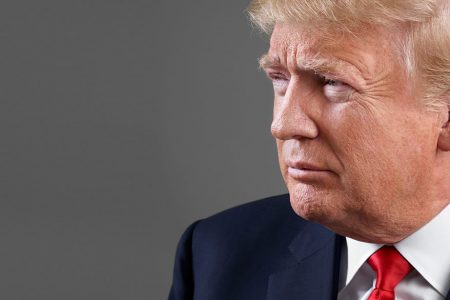Last week’s “Commanders-in-Chief” forum hosted by NBC-TV in prime time sought to probe presidential candidates Hillary Clinton and Donald Trump on national security issues. Sadly, the moderator Matt Lauer was ill-prepared and unsuited for the task. Instead, he wasted too much time grilling Hillary on her e-mails and not enough time challenging the elusive and often false statements of Mr. Trump. And sadly, Mrs. Clinton still has not found her footing in responding to the e-mail scandal.
Mr. Trump made headlines in how he accounted for sexual misbehavior in the military because women and men both serve together; in disrespecting generals and dismissing many as “rubble;” and perhaps most notably for praising Russian President Vladimir Putin as a stronger leader than America’s Barack Obama. The reality is that almost regardless of what Mr. Trump says, his message is discounted. It seems only the messenger counts.
On the subject of e-mails, the implication was that since someone had hacked into the Democratic National Committee’s emails, so too were Mrs. Clinton’s files violated. When asked if Russia were the source of the hacking and despite the substantial evidence laying blame, Mr. Trump was uncertain and suggested the allegation might be false.
Meanwhile, U.S. intelligence and law enforcement agencies are investigating the evidence to determine if Russian “active measures” to hack or otherwise influence American politics is valid. This electronic intrusion raises a number of questions. The first is “so what?” A corollary is “what is new?”
By most measures, far more damaging hacking arises from organized or disorganized crime; gifted amateurs testing their skills; and competitors who break the law to ferret out information on rivals. And it is no surprise that countries have always meddled in the internal affairs of other countries beyond current day Internet hacking. The United States has a far from perfect track record in this instance.
The second is what is meant by the word “Russian?” Is Vladimir Putin’s government overtly or covertly sponsoring this intrusion and Russian applies to the state. Does it mean individual Russians are hacking into Democratic Party and other websites to collect or steal intellectual property? Or, are different parties involved who may be placing blame on Russia and/or Russians?
The third question is what if anything can be done about hacking and hackers regardless of source and intent? More will be said about the greater menace of hacks.
America has often intruded into the affairs of other nations electronically or otherwise. And the converse was true. Examples of political interference are plentiful and not limited to the cyber age. Stealing secrets along with disinformation, misinformation and propaganda to influence internal politics are also as old as society.
Secretary of State Henry Stimson may have believed that “gentlemen do not read other gentlemen’s mail.” But American Army and Navy code breakers certainly did that during the interwar years. Breaking German and Japanese codes contributed to winning World War II. And engineering regime change was not unique to the George W. Bush administration in invading Iraq in 2003.
Presidents Truman, Eisenhower and Kennedy were quite happy to replace foreign leaders not favorably disposed to American interests whether in Central and South America; Cuba unsuccessfully; Iran in 1953; or a number of African countries. South Vietnam was also host to American active measures to affect political outcomes legitimizing a string of Vietnamese presidential generals and air marshals.
The CIA and NSA are chartered to use covert means of espionage including substantial hacking endeavors not limited to Russia, China and other tempting targets to influence events and outcomes. Before we accuse Moscow of similar activities, did not Benjamin Netanyahu attempt to subvert the Joint Comprehensive Plan of Action to end Iran’s nuclear weapons programs in addressing both Houses of Congress? No one seemed to object to the Israeli prime minister defying an American president in his nation’s capital. Nor when Barack Obama came out strongly against Britain leaving the EU, did this appear to Americans as undue interference in UK politics. Neither was hacking. But both surely tried to influence political outcomes.
Regarding whether Russia or Russians were hacking into political party networks, what would be Putin’s purpose? Putin surely is not a fan of Hillary Clinton. But she at least is a safer pair of hands and someone Putin might be able to find easier to manipulate than her opponent.
While Donald Trump may have expressed a sympathetic view of Mr. Putin, still, the candidate’s erratic behavior and chameleon-like shifts in what passes for policy would not necessarily have the Kremlin in his corner. Trump might be capable of anything. From Putin’s perspective, neither candidate seems to be his choice.
What can be done? Affecting elections by any and every means is not news. Arguably, the Kennedy clan stole the 1960 election in West Virginia and Illinois. Richard Nixon accepted defeat then but covered up the botched Watergate break-in a dozen years later to burgle Democratic secrets. Al Gore might have won the presidency Florida had the Supreme Court not interceded.
The best response today to Internet intrusions into our politics is to identify the source of hacking. If it is the Russian government, the U.S. has many ways to respond. One is to present the evidence in public respecting the sensitivities of sources and methods of collection. And covert activities to delegitimize Putin’s rule would be fair game. If someone else is the culprit, appropriate action can include lawsuits and criminal prosecutions.
The larger concern extends far beyond Internet hacking. It is political hacks who distort and damage the process of government far more than hackers. And here corrective solutions certainly need strengthening.




